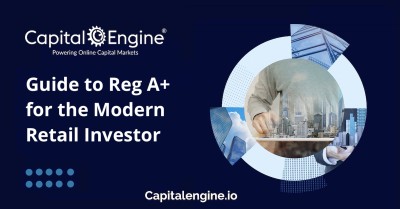Private Markets

Accredited Investors vs. Retail Investors: Unlocking Opportunities in Private Markets
March, 2025
Accredited Investors vs. Retail Investors: Unlocking Opportunities in Private Markets
Private markets have long been associated with exclusive opportunities for accredited investors, but the landscape is changing. With new regulations and innovative investment platforms, retail investors have more ways to participate in these high-growth markets. Understanding the differences between investor classifications is essential for those looking to capitalize on private investment opportunities.
Expanding Access: Accredited and Retail Investors
Who is an Accredited Investor?
An accredited investor is an individual or entity that meets specific financial criteria set by regulators, allowing them to invest in private securities traditionally out of reach for most investors. In the United States, an investor qualifies as accredited if they meet one of the following:
Recent SEC Guidance on Accredited Investor Verification
In a move to streamline the verification process under Rule 506(c) of Regulation D, the SEC recently expanded its guidance on accredited investor verification. Issuers can now rely on high minimum investment amounts and written representations from investors as reasonable steps to verify accredited status. This change simplifies the compliance process, reducing administrative burdens and allowing investment funds and issuers to attract a broader pool of accredited investors. The SEC’s interpretive position reinforces the legitimacy of high investment thresholds as an indication of financial sophistication.
Who is a Retail Investor?
A retail investor, also known as an individual investor, is someone who invests in securities for personal use rather than on behalf of an institution. Traditionally, retail investors were limited to publicly traded stocks, bonds, and mutual funds, but new investment channels are opening exciting private market opportunities for them as well.
Breaking Barriers: How Retail Investors Can Enter Private Markets
Private investments—such as private equity, venture capital, and real estate syndications—are increasingly accessible to retail investors, thanks to regulatory advancements and technological innovations.
Key Developments Empowering Retail Investors
Investing in private markets offers several advantages, including:
While the opportunities are exciting, retail investors should take a strategic approach:
Private markets are no longer an exclusive club for accredited investors. With evolving regulations and cutting-edge financial platforms, retail investors have unprecedented opportunities to diversify their portfolios and tap into high-growth markets. The SEC's latest guidance on accredited investor verification further streamlines the process for eligible investors, making capital-raising more efficient for issuers.
At Capital Engine®, we provide innovative solutions to help investors navigate and capitalize on private investment opportunities. Explore how our platform can help you unlock new possibilities.
Explore Investment Opportunities
About Capital Engine®
Capital Engine® provides forward-thinking organizations with efficient and scalable private capital and investor management solutions, for both traditional and digital assets.
Built for high-performance capital raising, our technology helps leverage the opportunity to better originate and showcase a diverse selection of private investment deals and offer these to investors i.e. a deal’s potential viability can be better assessed, market appetite determined and transaction promptly closed.
Our clients include broker dealers, family offices, wealth managers, incubators, accelerators, social impact and real estate funds, in providing customized SaaS solutions to power private capital and alternative investment platforms, with a strong focus on investor management services.
Interested in Raising Capital
Request a Call / Demo
Private markets have long been associated with exclusive opportunities for accredited investors, but the landscape is changing. With new regulations and innovative investment platforms, retail investors have more ways to participate in these high-growth markets. Understanding the differences between investor classifications is essential for those looking to capitalize on private investment opportunities.
Expanding Access: Accredited and Retail Investors
Who is an Accredited Investor?
An accredited investor is an individual or entity that meets specific financial criteria set by regulators, allowing them to invest in private securities traditionally out of reach for most investors. In the United States, an investor qualifies as accredited if they meet one of the following:
- Income Threshold: An annual income of at least $200,000 (or $300,000 with a spouse) for the past two years, with expectations of earning the same in the current year.
- Net Worth: A net worth exceeding $1 million, excluding the primary residence.
- Professional Certifications: Certain financial industry certifications, such as Series 7, Series 65, or Series 82 licenses, may also grant accreditation status.
- Entities: Businesses with assets exceeding $5 million or those in which all equity owners are accredited investors.
Recent SEC Guidance on Accredited Investor Verification
In a move to streamline the verification process under Rule 506(c) of Regulation D, the SEC recently expanded its guidance on accredited investor verification. Issuers can now rely on high minimum investment amounts and written representations from investors as reasonable steps to verify accredited status. This change simplifies the compliance process, reducing administrative burdens and allowing investment funds and issuers to attract a broader pool of accredited investors. The SEC’s interpretive position reinforces the legitimacy of high investment thresholds as an indication of financial sophistication.
Who is a Retail Investor?
A retail investor, also known as an individual investor, is someone who invests in securities for personal use rather than on behalf of an institution. Traditionally, retail investors were limited to publicly traded stocks, bonds, and mutual funds, but new investment channels are opening exciting private market opportunities for them as well.
Breaking Barriers: How Retail Investors Can Enter Private Markets
Private investments—such as private equity, venture capital, and real estate syndications—are increasingly accessible to retail investors, thanks to regulatory advancements and technological innovations.
Key Developments Empowering Retail Investors
- Regulation Crowdfunding (Reg CF): Introduced under the JOBS Act, Reg CF allows retail investors to participate in private market deals with investment limits based on their income and net worth.
- Regulation A+: This SEC rule enables companies to raise to $75 million from both accredited and non-accredited investors, offering broader access to private investments.
- Tokenization of Assets: Blockchain technology is revolutionizing private markets by fractionalizing ownership, making it easier for retail investors to participate in asset classes that were once reserved for institutional investors.
Investing in private markets offers several advantages, including:
- Higher Growth Potential – Private companies often experience significant growth before going public, offering attractive returns.
- Portfolio Diversification – Alternative investments can reduce overall market volatility and enhance long-term financial stability.
- Exclusive Investment Opportunities – Access to private market deals allows investors to participate in innovative businesses and high-value real estate projects.
While the opportunities are exciting, retail investors should take a strategic approach:
- Understand the Long-Term Nature: Private investments often require a longer holding period before returns are realized.
- Research and Due Diligence: Not all private market opportunities are the same—investors should assess transparency, management teams, and financials before investing.
- Diversify Smartly: Combining private investments with traditional assets can balance risk and maximize portfolio growth.
Private markets are no longer an exclusive club for accredited investors. With evolving regulations and cutting-edge financial platforms, retail investors have unprecedented opportunities to diversify their portfolios and tap into high-growth markets. The SEC's latest guidance on accredited investor verification further streamlines the process for eligible investors, making capital-raising more efficient for issuers.
At Capital Engine®, we provide innovative solutions to help investors navigate and capitalize on private investment opportunities. Explore how our platform can help you unlock new possibilities.
Explore Investment Opportunities
About Capital Engine®
Capital Engine® provides forward-thinking organizations with efficient and scalable private capital and investor management solutions, for both traditional and digital assets.
Built for high-performance capital raising, our technology helps leverage the opportunity to better originate and showcase a diverse selection of private investment deals and offer these to investors i.e. a deal’s potential viability can be better assessed, market appetite determined and transaction promptly closed.
Our clients include broker dealers, family offices, wealth managers, incubators, accelerators, social impact and real estate funds, in providing customized SaaS solutions to power private capital and alternative investment platforms, with a strong focus on investor management services.
Interested in Raising Capital
Request a Call / Demo
Latest Articles





